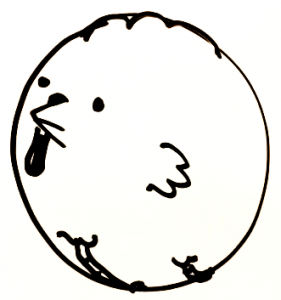Title: Use Pointers
General Information about Item:
- Joke
- English
- United States
Informant Data:
- Robert Sylvia is a Dartmouth ’17 electrical engineer. He’s from Medfield, Massachusetts.
Contextual Data:
- Social Context
- This joke would be shared in a casual, friendly context, probably among peers who both know they have some computer science background. It may be more likely to be shared among computer science coworkers, as it references the work environment.
- Cultural Context
- The humor of this joke derives from a pun on the homophones “a raise” and “arrays”. More than just the pun though, the joke is humorous due to its niche appeal. Understanding arrays and pointers is rather entry-level knowledge, but it still requires education in computer science that anyone who’s never studied computer science likely wouldn’t know. It gives them a sense of belonging to an in-group. Both arrays and pointers can be used for storing and accessing information. Arrays tend to be bulkier but more intuitive, while pointers are more versatile but more complicated. People with computer science background who push this debate take pleasure in choosing one side over the other–constructing a sort of team rivalry between the two–so an audience to this joke would the reference to the debate and the side-picking.
Item:
A programmer goes into his boss’s office and says, “I need a raise.”
The boss responds, “No you don’t, you need pointers.”
Transcript:
- Chrissy: Could you give your name and background?
- Robert: I’m Robert Sylvia. I’m a Dartmouth ’17 engineering major.
- Chrissy: Uh, could you tell us what joke you have?
- Robert: Yes. It’s uh–So, there’s a programmer who goes into his boss’s office and says, “I need a raise.” And the boss responds, “No you don’t, you need–you can use pointers.”
- Chrissy: So could you tell us where you heard–first heard the joke?
- Robert: I think I heard this joke through my physics professor in high school. Although it’s a little fuzzy, so it may have just been something I picked up along the way.
- Chrissy: And can you give the context of the joke?
- Robert: Um, well the idea behind it is that there’s two things in programming called “arrays” and “pointers”. And, they kind of can be used to do the same thing. It’s just that some people–most people prefer using arrays. And then pointers are–…have some…benefits to them programming-wise but they’re slightly harder to use. And that’s kind of the gist of the joke.
Associated file (a video, audio, or image file):
Collector’s Name: Christina Long
Tags/Keywords:
- Joke. Arrays. Pointers. Programming. Puns.


